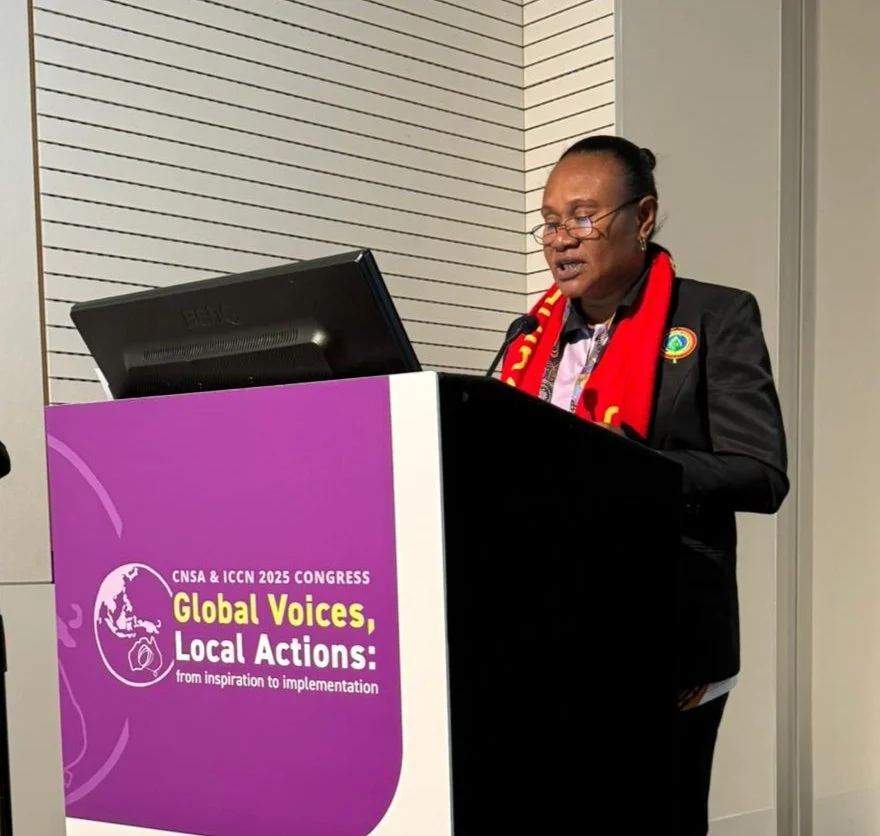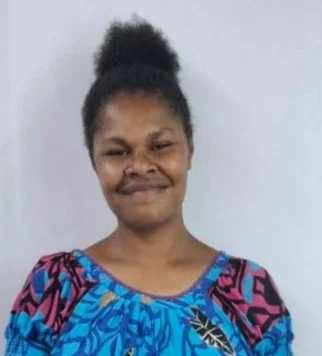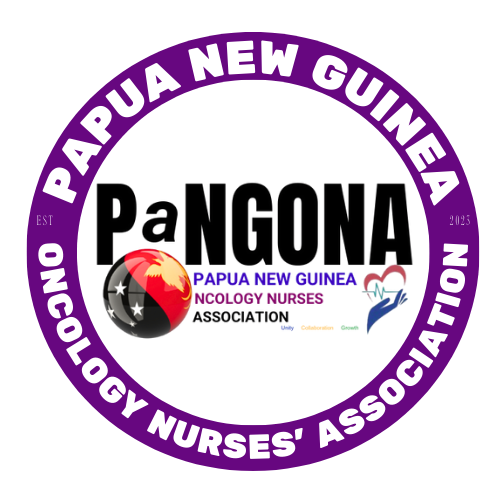Papua New Guinea Oncology Nurses’ Association
Regional Groups & Chairs
Regional Chairs
-

Edwick Vulia
Momase Regional Group
-

Sharon Aigoma
Southern Regional Group
-

Tracy Raiwato Siwa
Highlands Regional Group
-

Vincensia Mission
New Guinea Islands Region
PaNGONA Regional Groups
Overview
To ensure effective coordination, representation, and professional support for oncology nurses across Papua New Guinea, PaNGONA is structured into four regional groups. Each region is led by a Regional Chair, who oversees activities, facilitates communication, and promotes professional growth and collaboration within their region.
Regional groups play a critical role in bridging the gap between national initiatives and local nursing practice, ensuring that nurses in all provinces have access to education, mentorship, training, and resources necessary for delivering high-quality oncology care. These groups also provide opportunities for nurses to participate in research, share clinical experiences, and advocate for patient-centered care in their local healthcare settings.
1. Momase Region
Provinces Covered: Morobe, Madang, East Sepik and West Sepik Province.
Regional Chair: Sr. Edwick Vulia
Focus and Activities:
Coordination of regional workshops and seminars to enhance oncology nursing skills.
Mentorship programs for newly graduated oncology nurses and student members.
Promotion of community awareness programs on cancer prevention and early detection.
Facilitation of research collaborations within hospitals and healthcare centers.
Ensuring consistent communication between members, local hospitals, and the PaNGONA Executive.
2. Highlands Region
Provinces Covered: Eastern Highlands, Western Highlands, Southern Highlands, Enga, Chimbu, Hela and Jiwaka Province.
Regional Chair: Sr. Siwa Raiwato
Focus and Activities:
Organizing clinical skills training in chemotherapy administration, palliative care, and patient counseling.
Supporting regional nurses to participate in national and international conferences.
Coordinating case review sessions and peer discussions to improve patient care standards.
Advocating for adequate resources and oncology nursing support within provincial hospitals.
Encouraging nurses to publish research or participate in evidence-based projects.
3. Southern Region
Provinces Covered: Central, National Capital District (NCD), Gulf, Milne Bay, Western Province.
Regional Chair: Sr. Sharon Aigoma
Focus and Activities:
Facilitating educational programs, workshops, and networking events for oncology nurses.
Mentoring nurses in professional development, leadership, and clinical competencies.
Leading awareness campaigns and public engagement initiatives on cancer care.
Coordinating collaborative projects with hospitals, NGOs, and government health programs.
Monitoring and supporting regional membership growth and engagement.
4. New Guinea Islands Region
Provinces Covered: East New Britain, West New Britain, New Ireland, Manus and Autonomous Region of Bougainville.
Regional Chair: Sr. Vincensia Mission
Focus and Activities:
Providing training and mentorship for oncology nurses in remote and island communities.
Organizing local workshops and educational sessions to improve clinical practice.
Supporting regional participation in research projects and audits.
Promoting community outreach and cancer awareness programs.
Ensuring timely communication between members and the national PaNGONA Executive.
Roles and Responsibilities of Regional Chairs
Act as regional leaders and advocates for oncology nurses.
Coordinate regional training sessions, mentorship programs, and workshops.
Facilitate communication between members, committees, and the national PaNGONA Executive.
Monitor and report on regional membership engagement, activities, and professional development.
Represent their region at national conferences, PaNGONA meetings, and international forums.
Support research and evidence-based practice initiatives within the region.
Promote cancer awareness campaigns, early detection programs, and patient-centered care initiatives.
Benefits of Regional Group Membership
Access to local workshops, training programs, and networking opportunities.
Opportunities to participate in research, audits, and evidence-based practice initiatives.
Mentorship and guidance from experienced oncology nurses and regional chairs.
Stronger regional collaboration to improve patient care and professional standards.
Recognition of contributions in regional and national initiatives.
Regional Highlights and Achievements
Momase Region: Successfully organized provincial workshops on chemotherapy safety and patient education.
Highlands Region: Implemented mentorship programs linking student nurses with experienced oncology professionals.
Southern Region: Led public awareness campaigns on breast and cervical cancer in NCD and Central Province.
New Guinea Islands Region: Conducted training sessions in remote hospitals, improving access to palliative care services.

